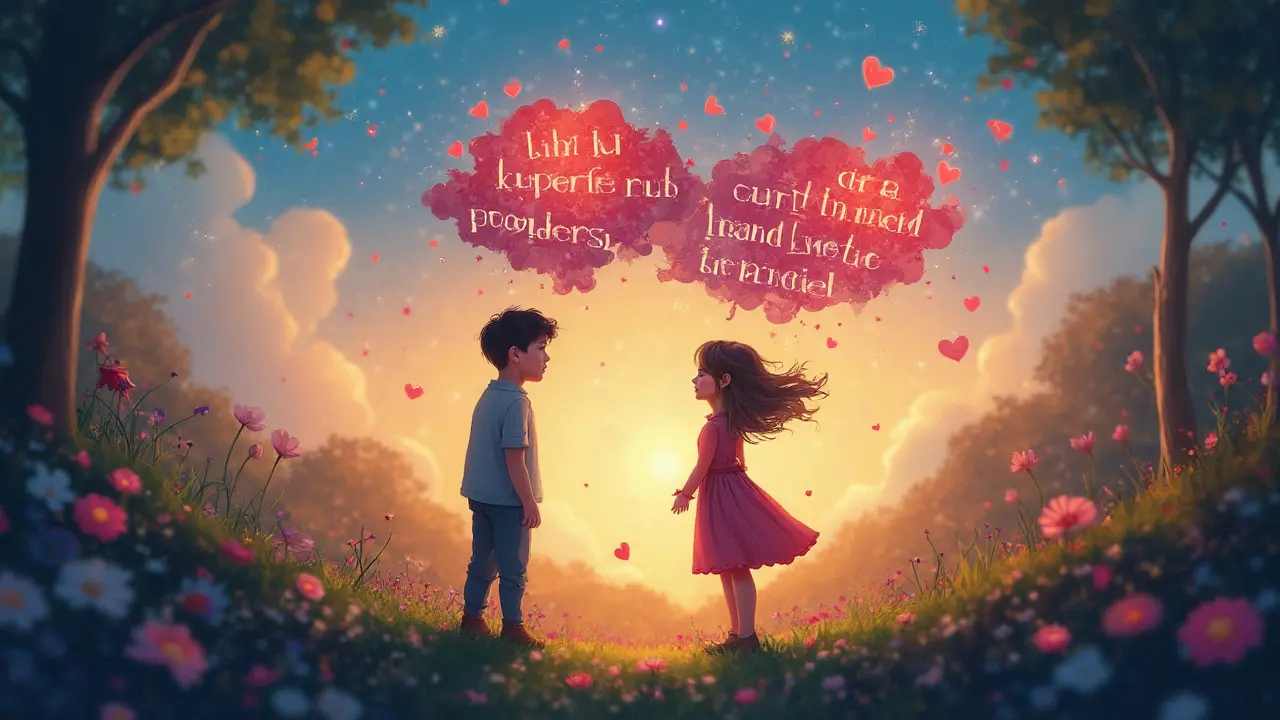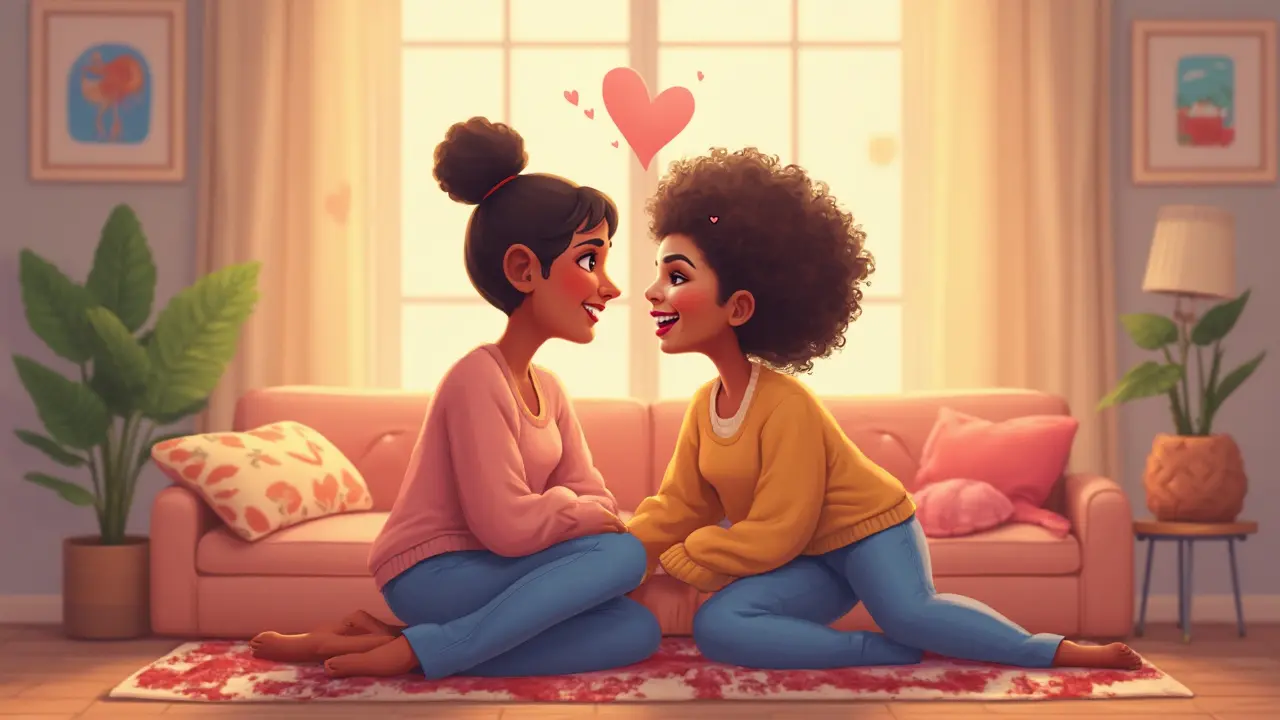Picture two grown adults—maybe smart, maybe serious in their day jobs—suddenly trading sweet nonsense like “wuv you” or “good boy” over takeout noodles. Embarrassing? Sure, if you get caught. But it’s everywhere; even the most buttoned-up couples use baby talk when no one’s watching. This cutesy, high-pitched chatter isn’t some weird outlier, either. It’s pretty much baked into relationships all over the world, and it raises a curious question: Why do we sound like toddlers when we’re falling for someone?
The Science Behind Baby Talk: What’s Really Going On?
You’re not losing your mind when you stammer “snuggle bunny” or “boo boo” at your partner. Researchers have dug into this odd habit—and the results are honestly kind of wild. Baby talk between adults goes by a more technical name in the academic world: “parentese” or “infant-directed speech.” It’s a communication style loaded with exaggerated intonation, high-pitched tones, and sing-song patterns. The twist? It’s not just reserved for cribs or playgrounds.
One study from the Journal of Social and Personal Relationships found that nearly two-thirds of couples surveyed admitted to using some form of baby talk with each other. The more surprising part: those who did, often reported feeling closer and happier together. Why? Turns out, this playful language builds intimacy. When you baby talk, you’re signaling trust and allowing yourself to drop your guard. It’s a bit like letting someone in on a private joke. Your adult brain knows you sound silly, but that’s the point—the silliness is mutual, and that’s what makes it bonding.
Neurologically, baby talk activates the brain’s reward system; those soft tones and cute nicknames can trigger the same warm feelings you get from a real hug. Sounds wild, but language itself is just a tool to build social bonds. By switching to baby talk, you’re saying, “I trust you enough to be weird with you.” This is why it’s often seen early in relationships or during moments of heightened emotional closeness. Even socially, it can be a code that separates “us” from “the world” and helps keep that connection tight.
Baby talk also links back to one of the first ways we learn to love and be loved—through the soft, reassuring voices of our parents. So in a way, echoing this with a partner isn’t regressive; it’s rewiring the brain to feel secure, wanted, and at home. There’s even a theory that baby talk is a low-stakes way to express vulnerability, which is the foundation of every strong relationship.
Why Couples Start Using Baby Talk (And Why It Sticks)
When two people start dating, everything feels new and slightly terrifying. You want to impress, but you’re also craving comfort—to know you’re safe with this other person. Baby talk slips in as a pressure valve, deflating all the seriousness. It helps you test your partner’s reactions: Will they laugh? Will they join in? If so, good news—your weirdnesses might just be compatible.
Maybe you think this is just something that happens on honeymoon or when people move in together. But relationship experts say baby talk sticks around far longer. Once it becomes a habit, it’s like an inside joke that never gets stale. What’s really cool is how it morphs—sometimes you use nicknames, other times it’s bits of nonsense language or goofy sound effects. Couples develop their own “language” within the relationship, one that feels as private as a whispered secret.
You’ll spot baby talk everywhere—from the couple passing notes at the back of a yoga class to friends who tease each other at brunch. Even work stress can make it flare up; after a rough day, some people find comfort in switching to a childlike chat, almost as if rewinding to a safer, simpler time. Sociologists have even compared baby talk to rituals used in long-term friendships. It creates stability and routine, a feeling that no matter how crazy the outside world gets, you two have this tiny island of silliness just for yourselves.
Now, you might think this is just for the hopelessly romantic or starry-eyed new lovers. But even couples who’ve been together for decades keep the tradition alive. Studies clock older couples still using babyish nicknames long after the honeymoon period. Some say it keeps them young, playful, and connected over the years—like an invisible string that never breaks.

Baby Talk Across Cultures: Is It Universal?
If you think baby talk is just a Western quirk, think again. Anthropologists have found versions of this in pretty much every culture—sometimes even more exaggerated than what you’ll find in New York, Paris, or London. For example, Japanese couples have a whole category of affectionate “pet names” and speech patterns considered ultra-cute, while in some Scandinavian countries, speaking in a childish tone is a key part of staying bonded. What changes is how public couples get with it—some cultures will only bust out baby talk at home, while others don’t care who’s watching.
Baby talk can also cross over into digital spaces. Ever text your partner a random string of emojis, a single letter, or some weird inside joke? That’s the modern version. Couples may use silly GIFs, mis-spelled words, or weird voices on voice notes. It all serves the same purpose—building a language only you two fully understand.
But there’s a limit. In some places, public displays of baby talk are frowned on, reserved strictly for behind closed doors. In London, for instance, people might get more creative with euphemisms or inside jokes. The internet has amped this up, with couples in long-distance relationships using video calls to keep their “secret language” alive even when separated by continents—a neat trick for stoking intimacy across time zones.
Interestingly, studies published in the International Journal of Language and Communication Disorders show that while mechanics change—words, tone, even gestures—the underlying reasons stay the same around the globe. It’s always about connection, trust, and a quiet kind of playfulness that can survive just about anything.
Does Baby Talk Really Help Relationships?
Here’s the part lots of people secretly worry about: does baby talk make your relationship stronger, or just make you look silly? The science leans toward “stronger.” Not only does it boost oxytocin (that feel-good hormone you get from hugs or laughter), but therapists regularly encourage couples to experiment with this kind of playful communication. It can de-escalate arguments, soften criticism, and remind both people that, deep down, you still like each other.
Of course, there’s a line between fun and annoying. If one person goes overboard, or if baby talk replaces real communication about important stuff, problems will creep in. But as long as both people vibe with it, baby talk isn’t just harmless—it’s a low-cost, low-effort way to hit the reset button on stress and make your partner feel adored.
Here are a few common ways baby talk can give relationships a boost:
- Easy Intimacy: Dropping your guard and talking silly can help you open up on heavier topics, too.
- Built-In Stress Relief: A dumb nickname can break tension after a tough day in a way no serious conversation ever could.
- Memory Lane: Some couples use the same babyish phrases for years, so they become markers for happy memories—kind of like revisiting a favorite song from your first road trip.
- Personal Code: Want to flirt or share encouragement in public without being obvious? Baby talk’s your best weapon.
- Emotional Security: Sometimes, a goofy “wuv you” can say more than a long chat about feelings ever could.
One study published in Psychological Science even found that couples who shared a greater number of “relationship-specific” words and silly phrases were quicker to recover from arguments. The unwritten rule? If you can be weird together, you can weather the tough stuff.

How to Make Baby Talk Work for You (Without Going Overboard)
A little goes a long way—baby talk isn’t about turning every chat into a toddler meltdown. Instead, try treating it like a seasoning: sprinkle it in during moments when you need comfort, intimacy, or just to laugh at yourselves. If one of you is more shy or finds it cringy, don’t force it. The point is to meet in the middle; maybe you settle for silly nicknames or inside jokes instead of full-on babbling.
If you’re looking to start, pay attention to little rituals you already share. Got a weird pet name? Use it when you need to make your partner smile. Throw in a playful voice when saying goodbye or goodnight. And don’t stress about sounding ridiculous; that’s the charm. The key is sincerity—forced baby talk is easy to spot and usually backfires.
For long-distance couples, digital versions really help. Use voice notes, inside joke memes, or silly stickers to keep the vibe going. Technology makes it easy to share your unique “language” no matter how far apart you are. If you’re curious about other ways to keep things spicy, some couples even try roleplay or fantasy, occasionally drawing inspiration from the playful banter you find in escort uk circles—check out this escorts for more about how playfulness and creative communication can add to intimacy.
Don’t be afraid to talk about it, either. Some people have childhood hangups or bad associations with baby talk. If your partner’s not a fan, you can still find ways to be silly together—through shared stories, code words, or quirky habits that don’t involve high-pitched voices.
And if you’re feeling brave, try keeping a running list of your relationship’s oddest words and phrases. Years later, you can pull it out for a laugh or walk down memory lane. Researchers say couples who take time to nurture rituals—of any kind—report longer, happier partnerships. Baby talk is just one more tool for your relationship toolkit.
At the end of the day, the best thing about baby talk is that it isn’t really about sounding like a kid. It’s about building trust, creating memories, and letting someone close enough to see you at your silliest. Whether you go for classic nicknames, nonsense words, or your own invented language, the real magic is in the connection it brings.




